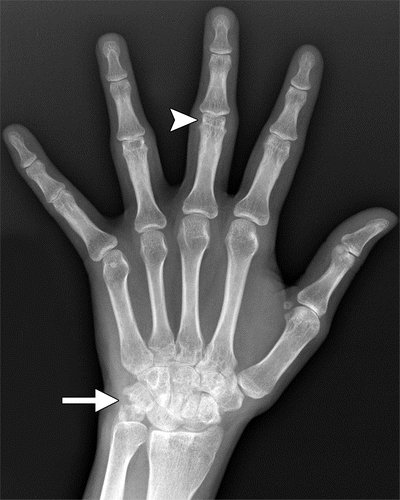Juvenile Idiopathic Arthritis

What is Juvenile Idiopathic Arthritis?
Juvenile idiopathic arthritis (JIA) is a group of chronic inflammatory autoimmune diseases that affect children under the age of 16. JIA causes joint pain, swelling, stiffness, and, in some cases, can lead to growth abnormalities and complications in other organs.
Who's at risk for Juvenile Idiopathic Arthritis?
Juvenile idiopathic arthritis typically affects children under the age of 16, with most cases diagnosed between the ages of 1 and 5. Both boys and girls can develop JIA, but some subtypes are more common in one gender than the other. Factors that may increase the risk of developing JIA include having a family history of autoimmune diseases or genetic factors.
What causes Juvenile Idiopathic Arthritis?
The exact cause of JIA is not fully understood, but it is believed to be a combination of genetic and environmental factors. The immune system mistakenly attacks healthy joint tissues, leading to inflammation and joint damage.
How does Juvenile Idiopathic Arthritis start?
Juvenile idiopathic arthritis usually begins with symptoms such as joint pain, swelling, and stiffness, which may worsen over time. The severity of symptoms and the joints affected can vary widely among individuals and may change over time. The onset of JIA may be gradual or sudden and can involve one or multiple joints.
What are the symptoms of Juvenile Idiopathic Arthritis?
The primary symptoms of JIA include:
- Joint pain and tenderness
- Joint swelling
- Stiffness, especially in the morning or after periods of inactivity
- Limited range of motion
- Limping or difficulty walking
- Fatigue
- Fever
- Growth abnormalities
How is Juvenile Idiopathic Arthritis diagnosed?
Diagnosing JIA involves a thorough medical history, physical examination, and assessment of the child's symptoms. Blood tests may be performed to check for markers of inflammation and other indicators of autoimmune diseases. Imaging studies, such as X-rays or magnetic resonance imaging (MRI), may be used to assess the extent of joint damage.
How can Juvenile Idiopathic Arthritis be treated?
There is no cure for JIA, but treatment aims to manage symptoms, maintain joint function, and prevent long-term complications. Treatment options include:
- Nonsteroidal anti-inflammatory drugs (NSAIDs) to reduce pain and inflammation
- Disease-modifying antirheumatic drugs (DMARDs) to slow disease progression
- Biologic agents, which target specific immune system components to reduce inflammation
- Corticosteroids for short-term relief of severe symptoms
- Physical and occupational therapy to maintain joint function and muscle strength
- Regular exercise to improve mobility and overall health
What complications may occur with Juvenile Idiopathic Arthritis?
Possible complications of JIA include joint damage, growth abnormalities, eye inflammation (uveitis), and, in rare cases, involvement of other organs, such as the heart or lungs.
How can I prevent Juvenile Idiopathic Arthritis?
Since the exact cause of JIA is not fully understood, there is currently no known way to prevent its development. However, early diagnosis and appropriate treatment can help manage symptoms and reduce the risk of long-term complications.
Long-term management of Juvenile Idiopathic Arthritis
Long-term management of JIA involves adherence to the prescribed treatment plan, regular monitoring by a healthcare provider, and maintaining a healthy lifestyle. It is essential to have a strong support system, including a multidisciplinary care team, family, and friends, to help children with JIA cope with the challenges of living with a chronic condition.
What is recent research saying about Juvenile Idiopathic Arthritis?
Recent research on JIA focuses on understanding the underlying causes and mechanisms of the disease, identifying new biomarkers for early diagnosis, and developing more effective treatments. Studies are also exploring the potential role of personalized medicine, taking into account the individual's genetic makeup and specific disease subtype, to optimize treatment strategies.
Where can I go for more information on Juvenile Idiopathic Arthritis?
For more information on juvenile idiopathic arthritis, consult your healthcare provider or visit reputable health organizations' websites, such as the Arthritis Foundation, the American College of Rheumatology, or the Childhood Arthritis and Rheumatology Research Alliance (CARRA). These organizations provide comprehensive information on JIA, including diagnosis, treatment, management strategies, and ongoing research.

